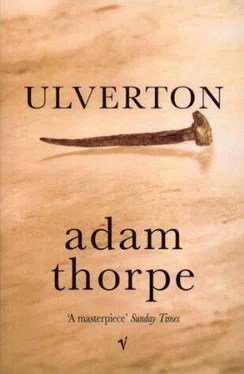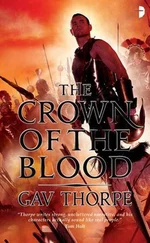Not that the members of the ‘team’ were happy with this arrangement — I mean, their enforced sacrifice. I don’t want to give the impression that they were burning to be off into foreign parts, and slaughter the Hun: no, it was far more owing to an uncomfortable sense of exclusiveness; a coat that carries well in Pall Mall, but not amongst the labouring brethren of rural England. Exclusiveness, or difference, without material satisfaction — that is too close to the outsider complex. Every aside in the Half Moon, or the Malt Shovel, or the Green Man, or the New Inn; every little silence at their leaving; every knowing smile or wink in the lane; each military or patriotic reference in the Harvest Home songs of that summer’s end; every slow, laborious reading-out of the newspaper before the assembled family or the tap-room company became a jab, a prod, not just to the conscience but to that feeling of belonging so essential to the otherwise lonely human animal. Our village was more full of eccentrics then than now, but even the most awry of minds was inextricably woven into the common fabric, just as the trees in the wood grow more individual the more familiar one becomes with the mass. Matters have changed: our great roads are thronged with motor-cars and lorries, the wireless tinkles, the telephone connects us with far-away towns. Ulverton is slowly losing its sense of remoteness; each day brings the world nearer, darkening my room with its passing, pruning us of our odder growths, blowing away the strong rich scents that come of stagnation. The nearest high scarp is no longer the edge of the world, and heads barely turn when the toot of a motor-car sounds at Church Corner. Is this to be regretted? Time, dear reader, shall arbitrate upon that question — not I.
Let us remain with that group of men huddled upon the high hills of chalky England in the late summer of 1914: let us try to imagine their position, and feel their discomfort: let us equate it with our own moments in life, when someone has done something that reflects a light back upon us, in which we are uncomfortably exposed to our conscience, and to the imagined grievances of others. Then in the penultimate week of August the bell tolled a death-knell; and slow and dull and remorseless it sounded across the downs. Each man cocked an ear, paused in his delicate work. A far shout from a stubbled field, and a cart rocking with its corn-load stopped. Two great whirring reapers in a field below us plodded on, their magnificent harnessed teams oblivious to human misfortunes — but the drivers turned in their seats to look down at the village, and the women paused by their stooks, lifting their bonnets to gaze. Tiny figures were to be seen hurtling up various tracks, childish shrills sounded, the harvesters in the fields came together in knots and dispersed, and soon enough Sidney Bint, the baker’s small boy, came panting up the side of the mound, and the name of Jimmy Tuck resounded shrilly over our little scooped world. A pale lad with a stutter who had done me some service by mending the stone outhouse roof at the bottom of my garden — making of it a study wherein I sit now, in the scent of buddleia, just as I did then through those golden evenings — Jimmy Tuck died at Maubeuge on August 21st, blown apart by an artillery shell.
We all turned to the Squire as the lad stood there, panting, apparently exhilarated by the effect his words had had. Another boy popped up beside him, swore softly at being beaten to it, put his hand on his friend’s shoulder, and looked down at us with equal anticipation. I felt for a moment as though I was on a stage, in an ancient theatre, where ritual grief sounded after ritual murder. We were looking to the Squire as if he were the salvatory King, as if he might raise his arms, and open his throat, and wail for all of us. Instead, he reached into his waistcoat pocket and took out two pennies, flicked them to the boys (who scampered off down Louzy Hill, shrieking at their good fortune), scratched his forehead, and indicated with his trowel that we should continue — and nothing more was said for the rest of the day, bar the odd ‘poor bugger’ murmured into the chalk. I felt now as if I were at a tea-party where a guest had loudly broken wind; where some rule had been broken and custom breached by the unforeseen — and no one was quite sure what to do about it.
So it was not unexpected when Marlers stood up at the end of a day’s excavation and announced that this was to be his last week. His leggings were white with chalk; his face was streaked like a clown’s. He said that Jimmy Tuck’s mother looked at him funny, that the nips looked at him funny, that the whole universe, in effect, was looking at ‘awld Marlers funny’. I had indeed looked at him, I must say, with a wry internal grin since our first encounter, when he had come to advise on the contents of my greenhouse, and I had displayed the newcomer’s unerring ability to try too hard. ‘Ah, good morning Mr Marlow, come in,’ said I. ‘My name en’t Marlow,’ came the lugubrious reply, ‘it be Trevick.’ Why ‘Marlers’ I have not been able to discover. Not that it matters now: how many bright appendages are lost, how many quirks and tics that make up the human sum of personality slip beneath the earth, when faceless Death strikes!
Back on the barrow, the Squire blanched a little at this news. ‘It’s your decision,’ he said. He could have said little else, in the circumstances. Ernest, whom he was consulting at that minute, sucked on a pencil.
‘Duty,’ said Marlers, glancing at the others, who were wiping their trowels on the soft tussocks. ‘You talked of duty at the meetin’, so we understand. That’s why all our young lads have gone. You an’ your sword from Waterloo, sir.’
‘Yes,’ said the Squire, looking down. ‘Of course. Duty.’
Ernest began to flick through his drawings. Urns, shards, an iron hair-pin, yesterday’s broken beaker impressed with a comb in crude diamond-shaped patterns. Nothing of significance or value.
‘Yes. Of course. Duty.’
Marlers, Allun the chauffeur, Terence Brinn, and wheezy but no doubt formidable Tom Sedgwick — all left at the end of the week. Ernest stayed, of course — as well as Dart, nostrils quivering like a horse, content with his stupidity. The Squire was devastated, and consoled himself by shooting pigeons for a week in Bailey’s Wood — while the barrow was left under canvas wraps. A month of disappointing finds had taken its toll, and now war had interrupted his long-held ambition (this is how I now interpreted it) to take possession of an ancient treasure.
Sometime during this week of idleness, Ernest called round and (in between taking sips of tea with his tongue-tip protruded, like a cat at its milk) explained to me the various stages through which the barrow had passed before resting content with tussocks and butterflies and the odd rustic rump for four thousand or so years. His enthusiasm was tempered by the possibility that our Chief had lost interest. This was, he claimed, a sign of the amateur.
‘Though, of course, I cannot, um, blame him. Of course.’
I nodded. His moustache was wiped free of tea and malt biscuit and he spread out a diagram on the table between us.
‘Here,’ he said, pointing to a large oblong ringing the welter of circles and crosses; ‘here is the latest burial-phase. A ditch dug around the mound in which, um, we have found evidence of burial by cremation. The discoloration of the soil is probably due to the rotting of wooden stakes surrounding the most recent, um, mound phase.’
He paused. I was impressed.
‘From previous expeditions which I have been party to I predict that, um, an earlier phase will yield something much more exciting.’
‘Why should it?’
He smiled.
Читать дальше










